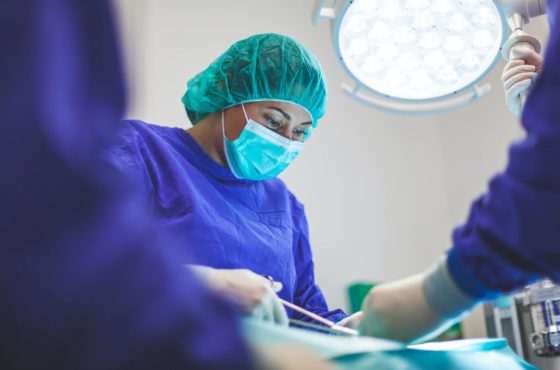If you’ve recently had hernia surgery, it’s normal to wonder when you can go back to your usual daily activities again.
And even though there is no single amount of time that could determine when patients can continue with physical activities following their hernia repair, for most people, full recovery time takes around three to four weeks.
However, each patient is unique, and therefore each recovers at a different pace. Recovery time for hernia patients can also vary based on some important factors.
Read on to learn more about the different factors that can affect your recovery time and how you can manage potential discomfort and pain — which is totally normal at a certain amount — after the procedure.
What to Expect after Hernia Surgery
After undergoing surgery to fix your hernia, you probably will have pain for a couple of days, but this is as normal as feeling tired and having less energy than usual after the operation.
A few days after hernia repair surgery, patients should not drive, drink alcohol, or go around carrying things.
Lifting or exerting too much physical effort can result in hernia recurrence, which is a common complication cited in hernia mesh lawsuits.
Hernia recurrence or hernias coming back is a potential complication of hernia mesh surgery. It is important to avoid physical activities that can lead to recurrent hernias.
For a couple of weeks, it is also possible to feel some discomfort or pulling in the site of hernia repair whenever you move.
Most patients may feel well enough to drive and return to work after a couple of days, but most doctors advise restricting patient activity for at least 2 weeks to allow for adequate recovery.
Patients usually go back to feeling normal again within four to six weeks after hernia repair surgery.
However, it is still best to discuss recovery time after hernia surgery with your doctor, as some types of hernia repair may need longer recovery times.
When Can I Go Home from the Hospital?
Hernia repair surgery usually only requires a 23-hour or less stay in the hospital.
Most patients are likely to go home from the hospital on the day of the procedure. However, you might want to have someone drive you home as it is not recommended for you to drive afterward — and even for a few days — due to the effects of the anesthesia.
Most hernia surgeries are also done on an outpatient basis and only take about one hour to finish, provided there are no complications.
Managing Post-Surgery Hernia Pain
Postoperative hernia pain is usually managed with over-the-counter pain medications such as Tylenol. In some patients, however, stronger may be necessary, especially in the first two days following .
Factors that Can Affect Recovery Time
Although in general, most patients will be able to resume normal activities (minus heavy lifting) within two weeks, there is still no precise number attached to each hernia patient’s recovery rate after the procedure.
In fact:
Recovery time may vary greatly from patient to patient based on several important factors. These include:
The type of hernia you have
There are different types of hernia. Its most common forms are:
- Inguinal hernia
- Femoral hernia
- Umbilical hernia
- Hiatal hernia
Other types of hernia are:
- Epigastric hernia
- Incisional hernia
- Spigelian hernia
- Diaphragmatic hernia
Inguinal hernia is the most common type of abdominal wall hernia, with over 800,000 repair surgeries performed each year in the United States to fix it.
The method of repair
A hernia does not usually go away on its own. With that said, surgery may be the only way to address this problem. There are three methods of repair or types of hernia surgery that can be performed. These are:
- Open surgery. Open hernia repair is where a cut or incision is made at the location of the hernia. The surgeon then sets the protruding tissue back in place and the then weakened abdominal wall is strengthened with stitches or hernia mesh.
- Laparoscopic surgery. In a laparoscopic hernia repair, smaller incisions are made instead of a cut to the abdomen or groin area. These tiny incisions allow a camera called a laparoscope to be inserted into the abdomen to help with the procedure.
- Robotic hernia repair. Robotic surgery is a newer method for repairing hernias. It also uses a laparoscope and is also performed with tiny incisions. In robotic surgery, the surgeon sits at a console next to you and handles the surgical tools from the console.
In general, patients who have minimally invasive surgeries including laparoscopic and robotic hernia surgery tend to recover at a faster pace compared to those who have open surgery.
Your overall health
A patient’s overall health affects the time it takes to heal from hernia surgery. Those with certain medical conditions may have prolonged recovery time which can take up to a year.
Your surgeon’s level of experience
Studies show that undergoing hernia surgery with an experienced surgeon lowers the odds of a patient suffering from adverse events after the procedure.
How Can You Care for Yourself at Home?
Your hernia surgeon will provide instructions for self-care in the days following your hernia surgery. Be sure to follow these instructions that can aid in your healing.
You can also try these tips for a more speedy recovery:
- Get enough sleep, as it will help you heal quicker.
- Take short walks each day because it boosts blood flow and helps prevent constipation and pneumonia.
- Avoid heavy lifting for the first two weeks
- Stay hydrated and eat a healthy diet to avoid constipation.
- Listen to your surgeon’s instructions about caring for your wound and bathing.
Hernia Mesh Surgery: Risks and Complications
As with other surgeries, surgery to repair hernia also poses some risks and potential complications.
Some of the most common hernia mesh complications include:
- Pain
- Mesh adhesion
- Bowel obstruction
- Migration
- Infection
- Hernia recurrence
If you are experiencing symptoms after having hernia surgery, you should seek immediate medical attention. These unpleasant symptoms can indicate the existence of more serious complications.
Potential risks and complications associated with hernia repairs include:
- organ or tissue damage
- infection
- urinary incontinence
- blood clot
- difficulty urinating
- nerve damage
- breathing difficulties
- fistula or an abnormal connection between two organs



